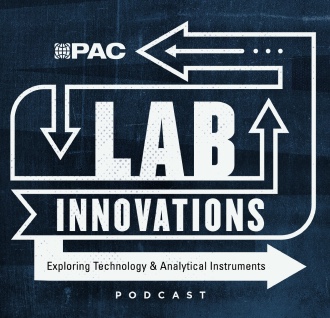-
Biomass availability and sector competition
The present version of the report is a draft sent out for review by selected stakeholders. Subject to exposing our findings to review comments during a webinar June 2nd 2022, the report will be prepared as a final version. The aims of this project have been to: - Provide an overview of recent scientific consensus on future potentials of biomass that are estimated to be sustainably available for non-food/feed purposes, i.e. as feedstock for energy, fuels and materials/chemicals - ...
-
Refiners are facing a new world and new markets as the drive toward sustainability accelerates. Business is leading the change as major global corporations move to increase sustainability and lower greenhouse gas (GHG) emissions. The endgame is to produce low carbon, sustainable fuels while maximizing available resources and reducing waste. Honeywell UOP has shaped the refining process since it began. As a global leader in sustainable fuel technologies, UOP helped pioneer ...
-
Fuelling The Future For Cleaner Skies
Creating new revenue streams for ethanol in the aviation sector. We’re expanding our Sustainable Aviation Fuel portfolio to include new Ethanol to Jet fuel technology. Ethanol to Jet fuel represents a new revenue stream for ethanol producers looking for diversification to satisfy the needs of the large and growing aviation market. Producers of SAF can recognize significant value from their fuels because of fuel production credits and airline demand for sustainable solutions ...
-
How sustainable aviation fuels are poised to dominate the sector
The need to decarbonise the aviation sector has never been clearer. In 2022, the International Air Transport Association (IATA) approved a resolution stating that the global air transport industry would achieve carbon‐neutral status by 2050. However, for a sector fuelled by crude-oil derived kerosene, it’s understandable that many are wondering how it can meet its targets.
-
Maritime Decarbonization Strategy 2022
The Maritime Decarbonization Strategy reviews the progress of the transition in the shipping sector so far and outlines the actions the industry must take to move closer to the Paris 1.5°C trajectory. The conclusions and recommendations presented in the report are based on analyses and modelling work done by the Mærsk Mc-Kinney Møller Centerfor Zero Carbon Shipping, outcomes from workshops with center partners and other stakeholders across the maritime industry, and the results ...
-
The 8th edition of our Maritime Forecast to 2050 report pragmatically assesses the road ahead for shipping, analysing regulations, technologies, and fuel availability, and helping stakeholders to make the correct decarbonisation decisions today. Several issues critical to the decarbonisation challenge are considered: - How a complex regulatory framework is taking shape, including carbon pricing, mandates on reduced GHG intensity of marine fuels, and the option to pool ...
-
Short-haul flying and sustainable connectivity
The emergence of global targets to decarbonise have brought with them increased scrutiny of transport and of aviation in particular. One proposed means of reducing greenhouse gas emissions from transport is a modal shift from air to rail. This has been encouraged both through investment in rail infrastructure, and by bans and taxes on short-haul air journeys. Oxera has been commissioned to assess the environmental impacts of air and rail and the factors that need to be taken ...
-
The Role of E-fuels in Decarbonising Transport
Rapid deployment of low-emission fuels during this decade will be crucial to accelerate the decarbonisation of the transport sector. Significant electrification opportunities are available for the road transport sector, while the aviation and marine sectors continue to be more reliant on fuel-based solutions for their decarbonisation. Fuels obtained from electrolytic hydrogen, or e-fuels, could be a viable pathway and scale up quickly by 2030, underpinned by a massive expansion ...
-
The progress of sustainable aviation fuel solutions for the decarbonisation of aviation
As the world increasingly commits to steeper decarbonization targets, the aviation industry is determined to develop sustainable solutions to produce cost-competitive, high-yield jet fuel with minimal environmental impact. The International Air Transport Association (IATA) estimates that the 2024 production volume of sustainable aviation fuels (SAF) will triple from 2023 levels – soaring to 1.5 million tonnes. This is in line with larger SAF production trends, as 2023 levels ...
-
Webinar discussing developments and solutions for renewable fuels testing
Regions and nations around the world are swiftly translating their climate targets into investments in renewable energy and fuel production. This necessitates a multifaceted approach and innovative solutions. Join us for this webinar as we report on the latest developments in the renewable fuels industry, with a particular focus on the transportation sector. We will discuss a range of renewable fuels, including SAF, ethanol, biodiesel, hydrogen, and their derivatives, while exploring ...
-
Low cost production of renewable diesel and sustainable aviation fuel
Feed flexibility is critical for operators to stay competitive and deliver high-quality products. But diversifying your feed can bring its own set of challenges. It gets even trickier when working with renewable feedstocks from biological sources. These materials are highly olefinic and might be packed with heteroatom contaminants. To turn them into something valuable, you need substantially more hydrogen than you would for conventional petroleum hydrotreating. We're talking 1,700 ...
-
Decarbonisation with Honeywell Sustainability Portfolio and the Inflation Reduction Act
The Inflation Reduction Act (IRA), passed by the US government on August 16, 2022, provides nearly $370B in clean energy and climate funding over the next decade There has never been a better time to invest in a more sustainable future. Our upcoming webinar will provide valuable insights into key IRA provisions and enabling technologies to accelerate industrial decarbonisation and achieve your long-term financial and sustainability goals. This webinar will offer an incredible ...






















